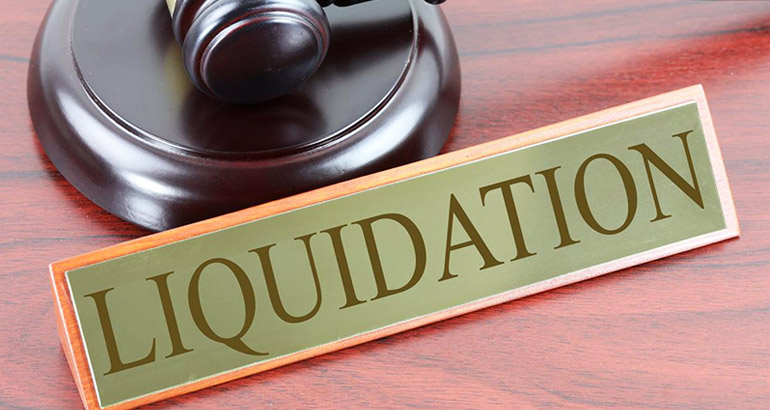The Of Company Liquidation
The Of Company Liquidation
Blog Article
An Unbiased View of Company Liquidation
Table of ContentsCompany Liquidation Can Be Fun For AnyoneFascination About Company LiquidationThe 7-Minute Rule for Company LiquidationCompany Liquidation for DummiesTop Guidelines Of Company Liquidation
A liquidator is especially selected to look after the ending up of a company's affairs in order for it to be shut down typically when the business is going bankrupt. The liquidator is an unbiased 3rd party that manages the sale of company properties in order to settle any impressive financial debts.Their duty includes, yet is not restricted to: Neutral Movie director: A liquidator is charged with acting as an unbiased 3rd party to manage the whole business liquidation process. Develop Declaration of Affairs: Liquidators should create a detailed statement of affairs document. This document is dispersed to financial institutions, outlining the current economic standing of the service at the time of its liquidation.
After the liquidation of a business, its presence is eliminated from Business House and it stops to be a legal entity. If directors navigated the process without concern, there would certainly be no charges or individual liability for firm debts anticipated. Currently, with a fresh start, directors can check out brand-new organization chances, though expert assessment is a good idea.
Some Ideas on Company Liquidation You Should Know
If even more than 90% of all company shareholders agree, liquidation can take place on brief notification within 7 days, the minimum statutory notification for lenders. Typically, the bigger the liquidation and the even more properties and capital the business has, the longer the procedure will certainly take.

We comprehend that no two companies coincide, which is why we will make the effort to be familiar with your business so we can recommend the best training course of action for you. We only operate in your benefits, so you can be entirely certain in the solution we provide.
Everything about Company Liquidation
In the UK, there is a set procedure to closing down or reorganizing a restricted company, whether it is solvent or insolvent. This procedure is referred to as liquidation and can only be taken care of by a qualified bankruptcy practitioner (IP) in conformity with the Bankruptcy Act 1986. There are four major types of business liquidation process: Lenders' Voluntary Liquidation (CVL); Compulsory liquidation; Management; and Participants' Volunteer Liquidation (MVL).

In these scenarios, it is vital that the business ceases trading; if business continues to trade, the directors can be held personally liable and it might cause the insolvency this hyperlink professional reporting wrongful trading, referred to as misfeasance, which may result in lawsuit. The directors appoint a bankruptcy practitioner and once this has been agreed and validated, there is a conference with the investors.
The directors are no much longer entailed in what happens, including the sale of the firm's properties. If the directors want any of the possessions, they can notify the IP.
The 3-Minute Rule for Company Liquidation
The main distinction is that the company's financial institutions related to the court for an ending up order which forces the financially troubled business right into a liquidation process. In many situations, lenders take this action as a last option due to the fact that they have not obtained repayment through various other types of negotiation. The court appoints a bankruptcy practitioner, likewise understood as a main receiver, to perform the compulsory business liquidation procedure.
This kind of company liquidation is not voluntary and directors' conduct is reported to the UK's Secretary of State once the liquidation process has actually been completed. Any kind of director that stops working to work together with the IP or has been involved in supervisor transgression, or a deceptive act, may result in serious repercussions.
It is used as a means to secure the company from any type of lawsuit by its lenders. The Recommended Reading directors of the firm agree to make regular repayments to resolve their financial debts over an amount of time. The appointed manager takes care of the volunteer management procedure, and gets the payments which they after that distribute to financial institutions according to the agreed quantities.
The Definitive Guide to Company Liquidation
This supplies the company with time to develop a strategy going onward to save the business and avoid liquidation. At this factor, supervisors hand see this site control of the company over to the designated manager. If a company is solvent but the supervisors and investors intend to shut business, a Participants Voluntary Liquidation is the right choice.
The business liquidation procedure is managed by a liquidator appointed by the directors and shareholders of the firm and they should authorize a declaration that there are no creditors staying. The liquidation procedure for an MVL is comparable to that of a CVL because possessions are become aware however the profits are distributed to the supervisors and the investors of the company after the liquidator's charges have actually been paid.
Report this page